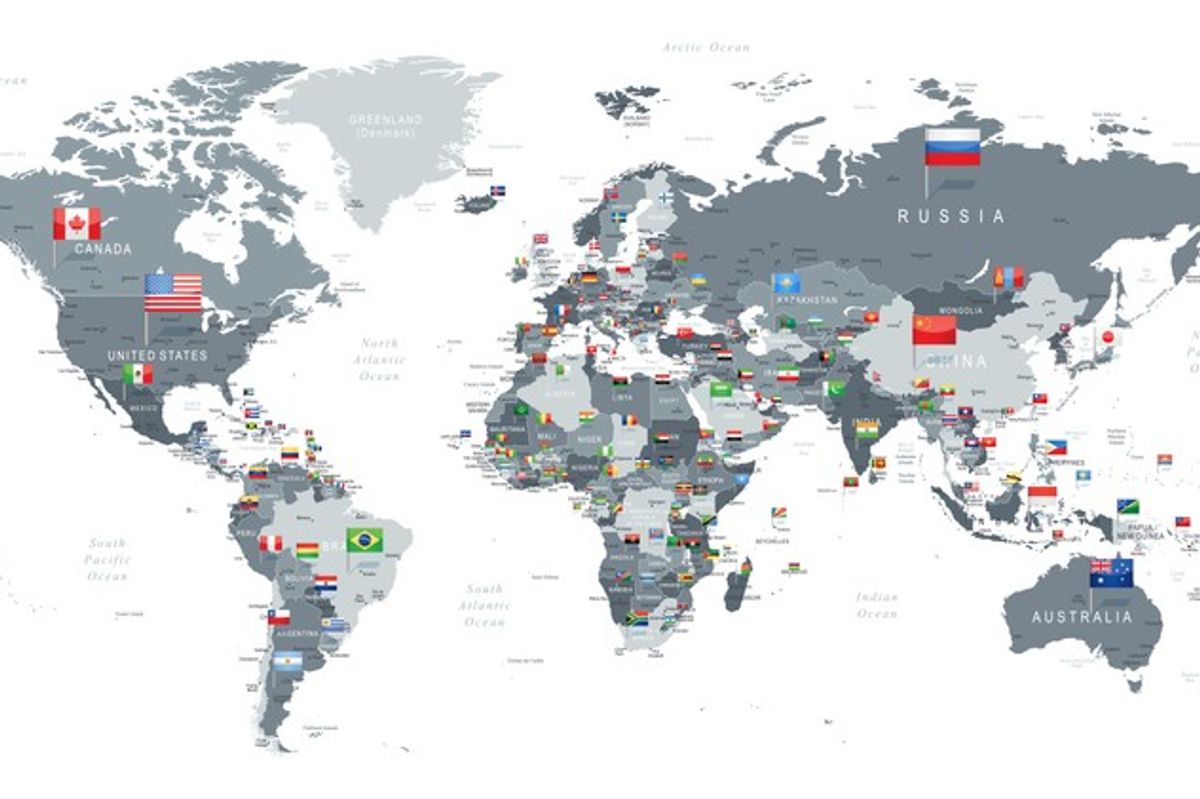British Prime Minister Theresa May and her Conservative Party’s upset electoral loss on Thursday has thrown British politics into chaos and called May’s survival as prime minister into question. However, May is reportedly still planning to begin Article 50 exit negotiations from the EU on June 19. As the realities of Brexit creep closer, The Cipher Brief’s Fritz Lodge spoke with Charles Grant, Director of the Centre for European Reform, to ask what the UK is looking to achieve and whether the proliferation of bilateral disputes with individual EU countries will complicate wider Brexit negotiations.
The Cipher Brief: The dispute between Spain and the UK over Gibraltar has received a lot of press recently, how do you think this will affect Brexit negotiations?
Charles Grant: Gibraltar is an issue but I don’t think that many people believe it is the most important issue. If I look at the various things that might lead to a crash in the Brexit talks – i.e. the British deciding to leave without a deal – arguments over how much money the British need to pay to get out of the EU or arguments over the European Court of Justice are more compelling.
Having said that, Gibraltar has the potential to cause big problems. There hasn’t been an agreement between the EU and the UK on aviation, and Gibraltar could become part of that debate. The Gibraltar Port Authority airport is not even in Gibraltar; it’s a Spanish claim on Spanish territory so that’s a particularly difficult issue. The Spanish will probably threaten to veto any aviation agreement unless the British give in on some of the things the Spanish want, which the British probably can’t do. So there are certainly a number of issues surrounding Gibraltar, which will be difficult to resolve
TCB: Of course, Gibraltar is just one of many outstanding bilateral disputes between Britain and EU countries. To you, what are some of the most important bilateral disputes, and will countries try to use Brexit negotiations as leverage over the UK to resolve them?
Grant: They may do so but I don’t think these bilateral disputes are necessarily going to be that important in the negotiations. Gibraltar is perhaps the exception. There are issues over Cyprus and British military bases but this isn’t really a dispute, just something that has to be dealt with. The Le Touqet Treaty [an immigration control agreement between France and the UK] is also a problem, but it is a separate issue that must be worked out between Britain and France regardless of what happens or doesn’t happen in British negotiations with the EU.
TCB: You don’t see the possibility that some EU countries will threaten to veto a British exit agreement if their demands on discrete bilateral issues are not met?
Grant: If I look at the top 20 issues that will be brought up in the exit negotiations, Gibraltar is the only one that might really be significant. I don’t see any of the other issues becoming critical, and these individual countries won’t really have a veto anyway. The Article 50 process calls for a majority vote at the end of the process, so if one country is being difficult and holding things up it can be out-voted by the other countries.
The trade agreement that arises out of negotiations will be a “mixed agreement,” which means that it requires not only European Parliament but also national parliament ratification, and it’s not a majority vote in the Council of Ministers. There is potential there for individual countries to create problems if they wish, for example Spain on the aviation agreement issue.
TCB: But you don’t think that these disputes will give the EU significant leverage over the UK in negotiations?
Grant: The European Union doesn’t need these bilateral disputes to find leverage, it has a lot of leverage already. It has just about all the leverage. The EU is in a very strong position, and the UK is in a very weak position. If there is no deal after Britain leaves the union, it would be catastrophic for the UK and only fairly bad for the EU, so all the power is in the EU’s hands as far as I can see. It doesn’t need to bring up bilateral disputes to strengthen its position, it’s in a very strong position already.
TCB: What are some of the ways that it would be catastrophic for the UK if British negotiators leave without an agreement?
Grant: If there’s no agreement it’s catastrophic for the UK in a number of ways.
First, the UK will face tariffs on trade with the EU. Second, it will face customs barriers and checks. Third, aircraft will not be able to fly between the UK and the EU because those aircraft will not be part of the European Aviation Safety Agency. Fourth, all the regulatory bodies that Britain is currently part of – not just air safety but things like pharmaceutical or financial regulation – Britain will no longer be part of those bodies. This means that British companies will not be able to sell many of their goods in European markets, because they will no longer be subject to the regulatory organizations that they are currently part of.
The main issue will be financial markets. If it looks like Britain is leaving the EU without any kind of agreement, the financial markets will panic, the pound will collapse, and the stock market will collapse. That will lead to an economic and financial crisis of quite high proportions in my opinion.
TCB: What points of leverage can the government of Prime Minister Theresa May use to win more favorable terms from EU negotiators on a possible exit agreement?
Grant: I think they have almost no leverage at all.
They have fish. That’s one leverage point. Britain has quite a lot of fish and, if there’s no deal, EU boats being excluded from British waters would be quite damaging to the French, Dutch, Belgian, and Spanish fishing fleets.
The other point of leverage Britain has is that it pays in roughly 10 billion euros a year to the EU budget, so when they leave the EU will lose that money, and before Britain goes, the EU wants them to make some payments and cover Britain’s share of unspent budgetary commitments. If the UK walks away without a deal then it won’t make any of these payments, which would be moderately bad news for EU countries.
So there are some small bits of leverage for the British but not much in my opinion.
TCB: When you look at the way talks may develop over the next year and a half, do you see any surprise issues that may come up beyond the major topics that have been brought up so far, such as British payments to the EU or the rights of EU workers in the UK?
Grant: Obviously there are three real issues for the Article 50 talks. You’ve mentioned two of them, the rights of EU citizens in the UK and the issue of payments. The third one is the question of the Irish border, which is extremely difficult. There’s not much of a surprise there because everybody knows it will be difficult, but the result will likely be some sort of hard border reestablished between Northern Ireland and the Republic of Ireland. This will be a provocation to terrorists in Northern Ireland.
But I actually think the more difficult, somewhat unknown issues, will be more long term. The question of regulation, market access, and particularly financial services. I have no idea what sort of deal Britain will try to get for its financial service companies to allow them to do business across the EU.
I do think aviation will be very difficult as well. In all these kinds of areas: aviation, electricity, financial services, data flows, et cetera, if the British want a deal that resembles single market access, they will be required to accept the European Court of Justice’s overview on what they do, which is probably unacceptable to Theresa May politically. That is a very difficult issue indeed, the Court of Justice.
TCB: What do you think is the best way for Theresa May and her government to proceed with Brexit talks set to begin June 19, especially after the result of British elections last week?
Grant: There is no longer a parliamentary majority for the hard Brexit that Mrs. May was pursuing. If she puts a hard Brexit deal to Parliament, a small number of pro-EU Conservatives would combine with the opposition to defeat her. She can only survive if she reinvents herself as the champion of a soft Brexit. That could mean staying in the customs union, remaining in some EU regulatory agencies, imposing only modest restrictions on EU migration, and not being dogmatic about excluding a role for the European Court of Justice.
Her best tactic for the negotiation with the EU is to be modest, be sober, be courteous, but also to be realistic and to understand what is at stake and to be honest with the British people that there are painful tradeoffs to be made. If we want to exclude the European Court of Justice entirely from our affairs, for instance, we will get a very bad deal economically.
At the moment, she hasn’t really admitted to the British people that there are these painful tradeoffs and choices. That’s something she must do.
TCB: Last thoughts?
Grant: One of the most difficult issues is going to be the so-called transitional arrangements. Between when Britain leaves the EU in March 2019 and when the new free trade agreement – if there is one – kicks in, there will be a gap of about 3-5 years. Thus, you need a transitional period in which Britain stays in parts of the common market and the customs union while the future free trade agreement is being negotiated.
The problem is that the EU will set a very difficult price for transitional arrangements. It will ask for concessions on the Court of Justice, free movement of people, and payments into the EU budget, and Mrs. May could find these prices difficult to meet. I think the negotiations and the transition will be extremely difficult. But if there’s no transition, then Britain’s exit will be very bumpy indeed with deeply negative economic consequences for the UK.
Getting these transitional arrangements will be key.












